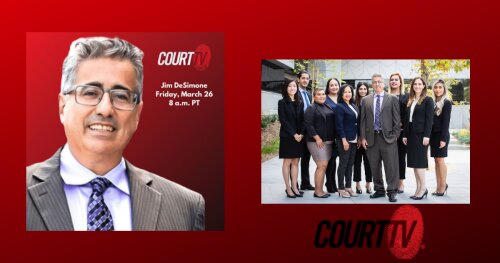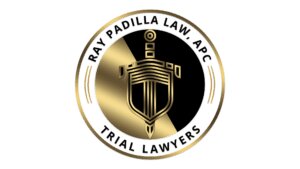Best Discrimination Lawyers in California
Share your needs with us, get contacted by law firms.
Free. Takes 2 min.
Or refine your search by selecting a city:
List of the best lawyers in California, United States
About Discrimination Law in California, United States
Discrimination law in California is designed to protect individuals from being treated unfairly or unequally based on certain protected characteristics. These laws apply to a wide range of settings, including employment, housing, education, public accommodations, and government services. California has some of the strongest anti-discrimination laws in the country, often providing broader protections than those offered by federal law. The laws aim to promote equal opportunity and prevent bias due to race, religion, gender, age, disability, sexual orientation, national origin, and other protected factors.
Why You May Need a Lawyer
There are many situations in which someone may require legal help for issues related to discrimination. Common scenarios include being denied a job or promotion due to your race, gender, or another protected characteristic; experiencing harassment in the workplace; facing unfair treatment when applying for housing; or being refused service at a business. Even if you are unsure whether your experience qualifies as discrimination under the law, consulting a lawyer can help you understand your rights, gather evidence, and take appropriate legal action. A lawyer can also advise you on deadlines for filing claims and represent you in negotiations or legal proceedings.
Local Laws Overview
California offers robust protection against discrimination through several important laws. The California Fair Employment and Housing Act (FEHA) prohibits discrimination in employment and housing based on race, color, religion, sex, gender identity, gender expression, sexual orientation, marital status, national origin, ancestry, disability, medical condition, genetic information, age, and more. The Unruh Civil Rights Act protects individuals from discrimination by all business establishments, including housing and public businesses. California also follows the federal Civil Rights Act and the Americans with Disabilities Act (ADA), but state laws often go further than federal protections by covering more people and situations.
Additionally, California recently expanded protections for LGBTQ+ individuals, undocumented immigrants, and people with disabilities. There are also specific procedures for filing complaints with state agencies, such as the Department of Fair Employment and Housing.
Frequently Asked Questions
What types of discrimination are illegal in California?
Discrimination based on race, color, religion, sex, gender identity, gender expression, sexual orientation, marital status, national origin, ancestry, disability, age (40 and over), genetic information, and military or veteran status is illegal.
Where does California discrimination law apply?
These laws apply to workplaces, housing, public accommodations (such as restaurants or hotels), government agencies, schools, and other business establishments throughout the state.
What should I do if I believe I have been discriminated against?
Document everything, including names, dates, and details. Speak to a supervisor or human resources if it is employment related. Then, consider contacting the Department of Fair Employment and Housing or an experienced attorney for advice.
Is retaliation for filing a discrimination complaint illegal?
Yes. California law prohibits employers, landlords, and other entities from retaliating against individuals who report or participate in discrimination investigations or lawsuits.
How long do I have to file a discrimination complaint?
Time limits can vary. Generally, for employment and housing claims, you must file a complaint with the Department of Fair Employment and Housing within three years of the alleged discrimination. Federal timelines may be shorter.
Can I sue for discrimination in California?
Yes, but usually only after you have filed a complaint with the appropriate administrative body, such as the Department of Fair Employment and Housing, and received a right-to-sue notice.
What type of damages can I recover in a discrimination case?
Damages may include back pay, reinstatement, emotional distress damages, punitive damages, and attorney’s fees. Each case is unique, and damages depend on the circumstances.
Are reasonable accommodations required for people with disabilities?
Yes. Employers, landlords, and businesses must provide reasonable accommodations unless doing so would cause an undue hardship.
Does California law provide more protection than federal law?
Often, yes. California law covers more protected characteristics, applies to smaller employers, and provides broader remedies for victims of discrimination.
What should I expect when I contact a discrimination lawyer?
A lawyer will ask questions about your situation, explain your rights, and may review any evidence you have. They can help you assess your case and choose the best course of action, including filing a complaint or negotiating a settlement.
Additional Resources
Several resources and organizations may help if you are facing discrimination in California:
- California Civil Rights Department (formerly Department of Fair Employment and Housing) - Investigates and prosecutes discrimination complaints in employment, housing, and public accommodation
- Equal Employment Opportunity Commission (EEOC) - Handles federal discrimination complaints
- California Courts Self-Help Center - Offers information about discrimination rights and legal processes
- Legal Aid Foundations and local legal services - Provide free or low-cost legal help in discrimination cases
- California State Bar - Referral service for experienced discrimination attorneys
Next Steps
If you believe you have experienced discrimination in California, start by collecting all documentation and details about the incident. Consider reviewing your rights and options through state resources. Speaking with an experienced discrimination lawyer can help you determine whether you have a case, understand your rights, and decide on the best action. When reaching out to a lawyer, be ready to share as many details as possible so they can provide accurate guidance. Acting promptly is important, as there are time limits for filing complaints. If you need immediate assistance, contact the California Civil Rights Department or seek legal aid services for support.
Lawzana helps you find the best lawyers and law firms in California through a curated and pre-screened list of qualified legal professionals. Our platform offers rankings and detailed profiles of attorneys and law firms, allowing you to compare based on practice areas, including Discrimination, experience, and client feedback.
Each profile includes a description of the firm's areas of practice, client reviews, team members and partners, year of establishment, spoken languages, office locations, contact information, social media presence, and any published articles or resources. Most firms on our platform speak English and are experienced in both local and international legal matters.
Get a quote from top-rated law firms in California, United States — quickly, securely, and without unnecessary hassle.
Disclaimer:
The information provided on this page is for general informational purposes only and does not constitute legal advice. While we strive to ensure the accuracy and relevance of the content, legal information may change over time, and interpretations of the law can vary. You should always consult with a qualified legal professional for advice specific to your situation.
We disclaim all liability for actions taken or not taken based on the content of this page. If you believe any information is incorrect or outdated, please contact us, and we will review and update it where appropriate.
Browse discrimination law firms by city in California
Refine your search by selecting a city.
















